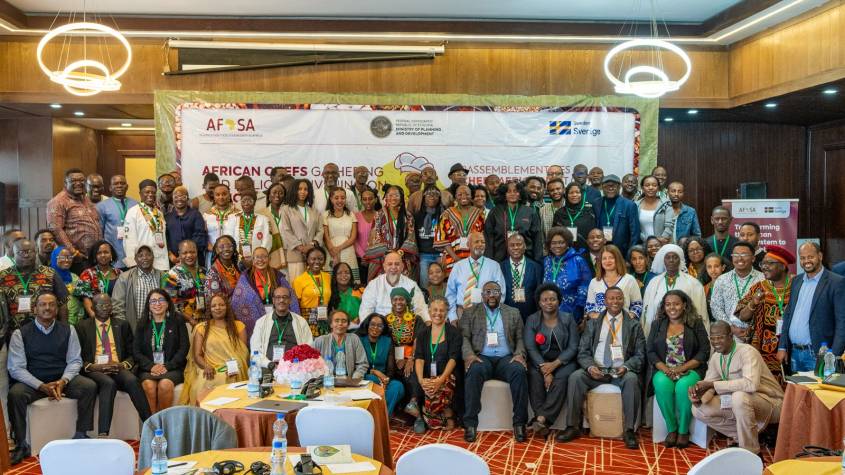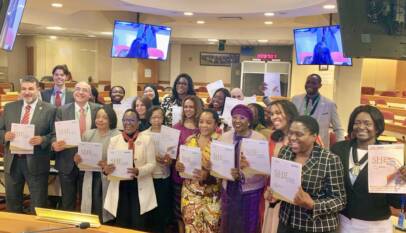African Chefs Unite to Defend Continent’s Food Sovereignty
The first African Chefs Gathering and Policy Convening, hosted by the Alliance for Food Sovereignty in Africa (AFSA), aimed to protect and promote African food culture, address policy gaps, and chart a path toward a just and sustainable food system.
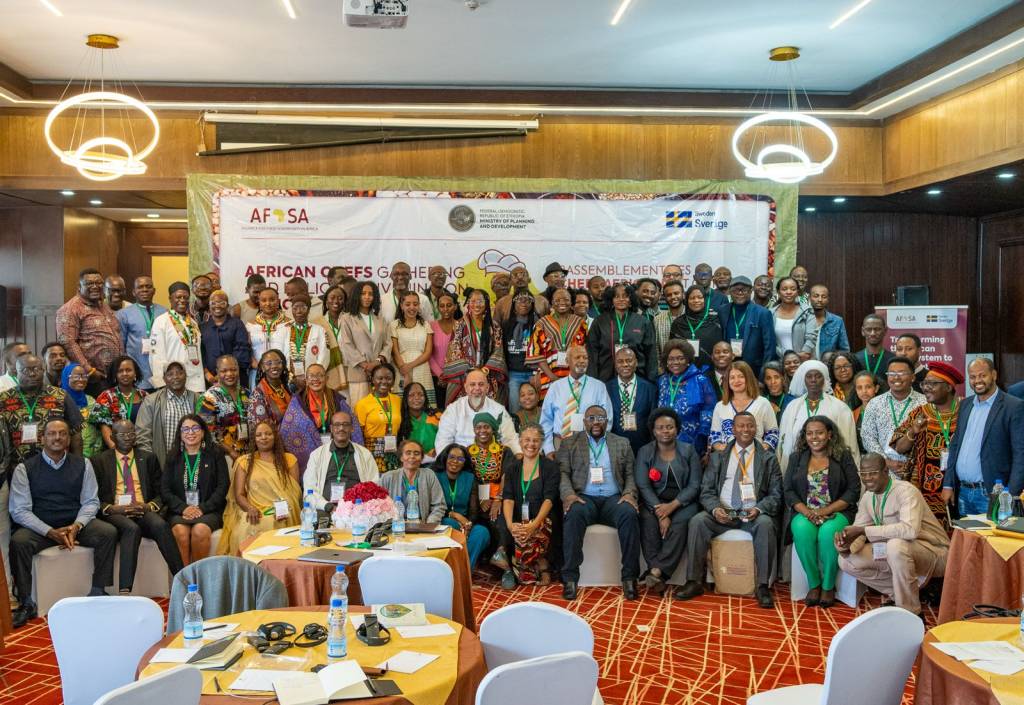
Africa’s culinary heritage—rooted in indigenous farming systems and community-based food cultures—carries immense nutritional, cultural, and ecological value. Traditional staples like fonio, teff, baobab, and moringa are deeply intertwined with identity, resilience, and a profound relationship with the land.
Yet, this heritage is under mounting threat from imported and ultra-processed foods, which displace local diets, undermine food economies, and fuel malnutrition and cultural erosion. Moreover, policy environments across the continent often compound the challenge, just as frameworks that favour industrial agriculture and global market integration marginalise smallholder farmers, indigenous crops, and traditional food systems.
Against this backdrop, the Alliance for Food Sovereignty in Africa (AFSA), the Alliance for Food Sovereignty in Africa (AFSA convened chefs and policymakers to advance the decolonisation of Africa’s food systems and envision a future anchored in heritage, health, and justice—positioning chefs as cultural ambassadors and advocates for systemic change.
Over three days, the gathering celebrated Africa’s diverse cooking heritage, showcasing traditional ingredients, dishes, and culinary knowledge from across the continent as well as exploring strategies to preserve, modernise, and elevate traditional cooking as a central pillar of African identity and nutrition.
The convening also analyzed food and agriculture policies to identify gaps and contradictions that undermine food sovereignty as well as defined a strategic path forward through a chef-led declaration and action plan, calling for African food systems to be embedded within national and regional policy agendas.
The convening held in Addis Ababa, Ethiopia, from July 23 to 25, 2025, marked a milestone in uniting culinary and policy leadership to reclaim Africa’s food future—ensuring that the continent’s kitchens remain a source of nourishment, culture, and sovereignty for generations to come.
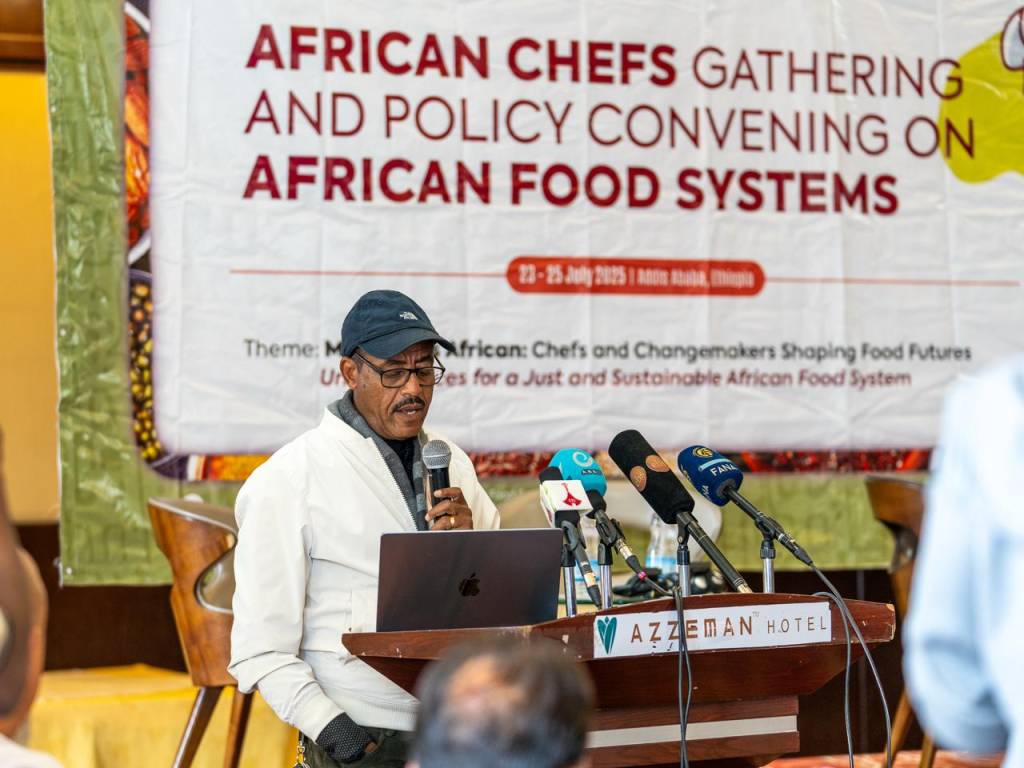
“African Indigenous Foods Disappearing from People’s Plates” – AFSA Board Member
In his opening remarks, Dr. Fassil Gebeyehu-Yelemtu, Board Member of the Alliance for Food Sovereignty in Africa (AFSA), warned that as imported and ultra-processed foods flood African markets and reshape diets, hundreds of African indigenous foods that have nourished communities for generations are disappearing from people’s plates.
“Chefs are cultural ambassadors. When you serve traditional ingredients, you tell the world that African food belongs in our homes, on global menus, and in national policy. People want food systems rooted in justice, agroecology, and our traditions—not models imported from elsewhere and driven purely by profit. We are here to build a food future that serves our people, not just markets—by standing together to demand policies that protect our seeds, our soils, and our stories,” said Dr Fassil.
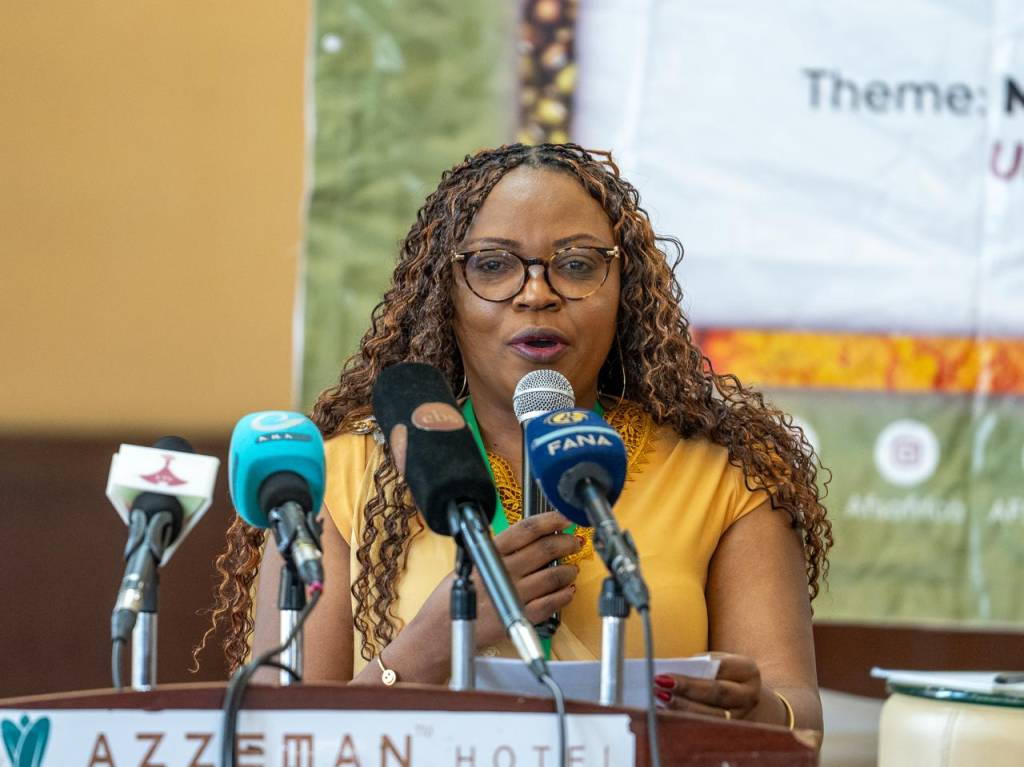
“Prioritise Farmer Autonomy, Local Knowledge, and Sustainable Practices” – Chair, EALA Agric C’tee
In her keynote address, Honourable Françoise Uwumukiza, Chairperson of the East African Legislative Assembly (EALA) Committee on Agriculture, Tourism, and Natural Resources, criticised existing policies and legislation for undermining local food systems and indigenous knowledge. She noted that Africa’s colonial legacy entrenched export-focused policies, leaving domestic food production underfunded and often casting local foods in a negative light.
“Indigenous foods are undervalued, yet they provide immense nutritional, environmental, economic, and socio-cultural benefits. Africa’s growing food imports signal a dangerous reliance on external sources, which weakens our local food systems. Urbanisation has shifted dietary habits toward processed and imported foods, pushing traditional foods to the margins,” she said.
Hon. Uwumukiza stressed that current food policy priorities in Africa favour industrial agriculture and large-scale farming over smallholder and traditional practices, which are often more sustainable and resilient, expressing EALA’s commitment to reversing this trend by championing policies that support smallholder farmers and indigenous communities.
The Rwandan lawmaker highlighted ongoing efforts to reform policies that strengthen Farmer Managed Seed Systems (FMSS), tackle global trade imbalances, and regulate the distribution of harmful pesticides and fertilisers—ensuring farmers’ voices are central to decision-making.
“We recognise agroecology as a strategic priority, as well as the vital role women and traditional leaders play in food production. This aligns with calls for gender equality and secure land tenure that promote equity and justice. We are advocating for the explicit recognition of FMSS in East African Community agricultural policies, to safeguard farmers’ rights to save, exchange, and sell seeds—practices that currently account for 60–80% of seed use in Africa,” she said.
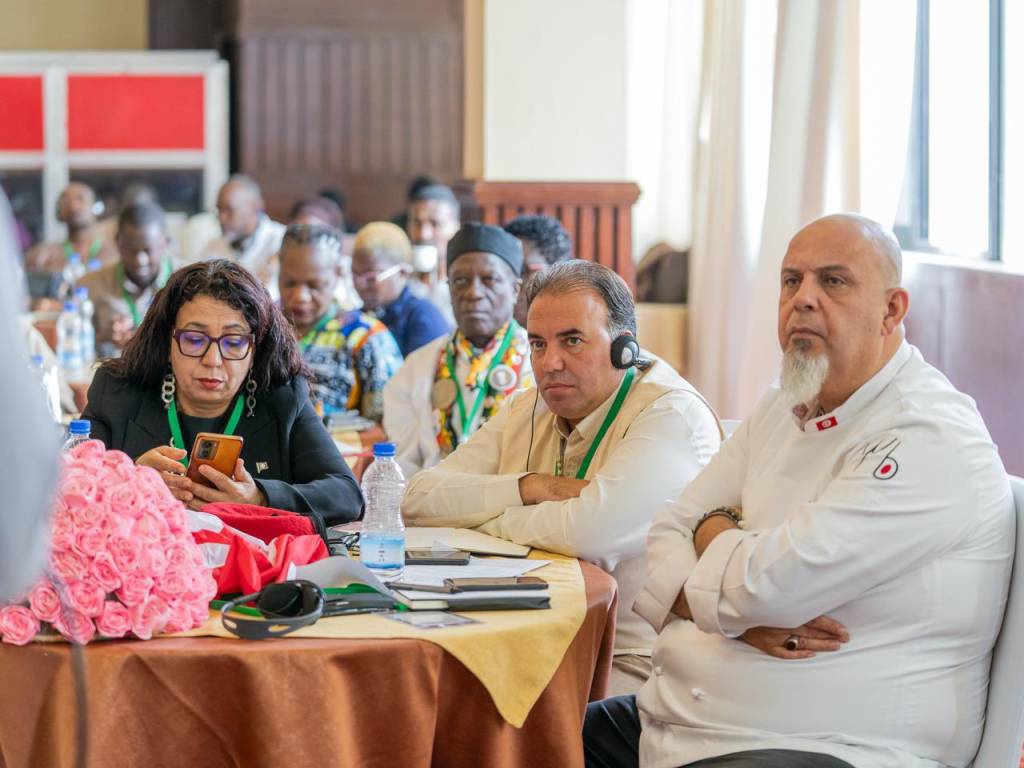
Chefs Set a Bold Vision for Food Sovereignty, Culinary Revival
The chefs and food leaders from 23 African countries, alongside international partners, concluded their gathering with a landmark declaration to celebrate Africa’s culinary heritage, confront pressing challenges, and shape a just and sustainable food future. The declaration charts an ambitious path to protect and revive African food systems, grounding them in heritage, agroecology, and true sovereignty.
In his remarks, Tafadzwa Anifasi, popularly known as De Ankarra Chef, a Zimbabwean TV and private chef, said the initiative is about celebrating African food heritage, confronting deep-seated challenges, reclaiming the future through African solutions, and committing to championing food sovereignty across policy, education, and media.
“Our food is medicine, memory, and movement—and it deserves global recognition. We have seen our youth grow increasingly disconnected from food traditions, while culinary curricula remain dominated by Eurocentric content. We will push to reform both culinary and agricultural education to reflect African knowledge systems—decolonising, dignifying, and diversifying Africa’s food future,” Mr. Anifasi said.

